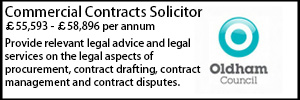Final report into Grenfell disaster gives damning verdict on the failures of government and contractors and recommends new regulation for the construction industry and local government
- Details
The final report into the Grenfell Tower fire has condemned failures by the government, building companies, contractors, fire safety experts and council staff that led to the high rise tower fire in west London on 14 June 2017.
The report concluded that the fire was “the culmination of decades of failure by central government and other bodies in positions of responsibility in the construction industry to look carefully into the danger of incorporating combustible materials into the external walls of high-rise residential buildings and to act on the information available to them.”
The report identified a number of opportunities between the fire in Knowsley Heights (1991) and 2017 when the government had the chance to identify the risks posed by the use of combustible cladding panels and insulation, particularly to high-rise buildings, and to take action in relation to them. The report states that by 2016, the government was well aware of those risks but failed to act on what it knew.
The government failed to adequately consider or publish the results of a large-scale test in 2001 involving aluminium composite panels with unmodified polyethylene cores.
The test revealed that these panels burned violently, but the government did not take any steps either to ascertain the extent to which panels of that kind were in use or to warn the construction industry about the risks they posed.
Additionally, the government was made aware that ‘national Class 0’, the scale by which external cladding was rated safe for use, was an inappropriate standard by which to determine the suitability of external wall panels but it remained as part of the statutory guidance until after the Grenfell Tower fire. The report finds that the standard could and should have been removed years earlier.
Approved Document B, the statutory guidance setting out building regulations, was reviewed in the period between 2005 and 2006, providing an opportunity to clarify the guidance on compliance with the minimum requirement for external walls adequately resisting the spread of fire over the walls and from one building to another.
The report found that the language used in the review was vague and ill-considered words were added at a late stage in the process without proper consultation.
The government knew the dangers of cladding buildings with polymeric insulation and aluminium composite panels with unmodified polyethylene cores. It had also witnessed numerous fires abroad involving cladding of the same kind. By 2013, the government were aware that Approved Document B was insufficiently clear and not properly understood by a significant proportion of those working in the construction industry and by February 2016 it had become aware that some in the industry were worried that combustible materials were routinely being used on high-rise buildings in breach of functional requirements of the document.
Despite what it knew, and the warnings it received from some quarters, the government still failed to amend or clarify the guidance in Approved Document B.
In early 2023, Michael Gove admitted that, at the time, there had been a “system of regulation that was faulty”.
He went on: “The government did not think hard enough, or police effectively enough, the whole system of building safety. Undoubtedly. I believe that [the guidance] was so faulty and ambiguous that it allowed unscrupulous people to exploit a broken system in a way that led to tragedy.”
After the privatisation of the Building Research Establishment (BRE) in 1997, the government limited the scope of the fire safety advice it sought from BRE, thereby losing valuable expertise. In some instances, the government even prematurely halted investigations into fire safety, preventing comprehensive conclusions from being reached.
This attitude was evident after the Lakanal House fire of 2009, where the coroner's recommendation to review key fire safety regulations was not treated with urgency. The government's response was defensive and dismissive, ignoring legitimate concerns raised by various stakeholders, including the All-Party Parliamentary Group on Fire Safety.
Furthermore, the government's focus on deregulation led to delays and neglect of vital safety issues, including the failure to regulate fire risk assessors and clarify fire safety rules for buildings with multiple residential units. Even when reviewing advice on the evacuation of vulnerable people, the government failed to consult relevant representatives, further highlighting its complacent approach to fire safety.
Recommendations
The inquiry made a large number of recommendations to various parties to improve their service and address any deficiencies the report found.
Among the recommendations made to the government and local authorities are:
- The government should bring responsibility for the functions relating to fire safety currently exercised by MHCLG, the Home Office and the Department for Business and Trade into one department under a single Secretary of State.
- The minister would need to be able to turn for advice to someone who has a good working knowledge and practical experience of the construction industry. It is therefore recommended that the Secretary of State appoint a Chief Construction Adviser with a sufficient budget and staff to provide advice on all matters affecting the construction industry, including:
- monitoring all aspects of the department’s work relating to the Building Regulations and statutory guidance;
- providing advice to the Secretary of State on request; and
- bringing to the attention of the Secretary of State any matters affecting the Building Regulations and statutory guidance or matters affecting the construction industry more generally of which the government should be aware.
It also recommended the creation of a new regulator for the construction industry. This construction regulator would, in the eyes of the inquiry, have sufficient resources to take on the following functions, most of which are currently discharged by one or other of a variety of bodies:
- the regulation of construction products;
- the development of suitable methods for testing the reaction to fire of materials and products intended for use in construction;
- the testing and certification of such products;
- the issue of certificates of compliance of construction products with the requirements of legislation, statutory guidance and industry standards;
- the regulation and oversight of building control;
- the licensing of contractors to work on higher-risk buildings;
- monitoring the operation of the Building Regulations and the statutory guidance and advising the Secretary of State on the need for change;
- carrying out research on matters affecting fire safety in the built environment;
- collecting information, both in this country and abroad, on matters affecting fire safety;
- exchanging information with the fire and rescue services on matters affecting fire safety;
- accrediting fire risk assessors;
- maintaining a publicly available library of test data and publications.
The report also recommended that:
- The definition of a higher-risk building for the purposes of the Building Safety Act be reviewed urgently, as it believes that to define a building as “higher-risk” by reference only to its height is satisfactory, being essentially arbitrary in nature.
- The statutory guidance generally, and Approved Document B in particular, be reviewed accordingly and a revised version published as soon as possible. The report also suggested that guidance should contain a clear warning in each section that the legal requirements are contained in the Building Regulations and that compliance with the guidance will not necessarily result in compliance with them.
- All local authorities train all their employees, including chief executives, to regard resilience and preparedness for emergencies as an essential part of their responsibilities.
This last of these recommendation stems from the report’s finding that the Royal Borough of Kensington and Chelsea (RNKC) was not able to provide an effective response to the emergency because it had not made adequate arrangements for staffing the emergency communication centre, had not made adequate provision for humanitarian assistance, including the provision of accommodation and financial support, did not have the ability to keep accurate records of those who needed help and had no effective system for communicating with the public.
RBKC, the report said, also had no effective means of collecting and recording information about those who had been displaced from the tower and surrounding buildings, including those who were missing. Therefore, the report recommended that all local authorities devise methods of obtaining and recording information of that kind, if possible in electronic form, and practise putting them into operation under a variety of different circumstances.
Regarding the regulation of social housing providers, the inquiry declined to make any firm recommendations. Since the fire, Parliament has enacted the Social Housing (Regulation) Act 2023, which enables the Regulator of Social Housing to play a more active role in setting appropriate standards and ensuring that they are met. For this reason, the inquiry did not consider it necessary to make any additional recommendations in relation to the matters uncovered.
Grenfell United, a group including and representing survivors and bereaved families from the Grenfell Tower fire, released a statement following the publication, describing the report as “a significant chapter in the journey to truth, justice and change.”
The statement continued: “But justice has not been delivered. The inquiry report reveals that whenever there's a clash between corporate interest and public safety, governments have done everything they can to avoid their responsibilities to keep people safe. The system isn't broken, it was built this way.
It speaks to a lack of competence, understanding and a fundamental failure to perform the most basic of duties of care.”
Harry Rodd
Sponsored articles
Unlocking legal talent
Walker Morris supports Tower Hamlets Council in first known Remediation Contribution Order application issued by local authority
Senior Solicitor - Property
Legal Officer
Locums
Poll

































